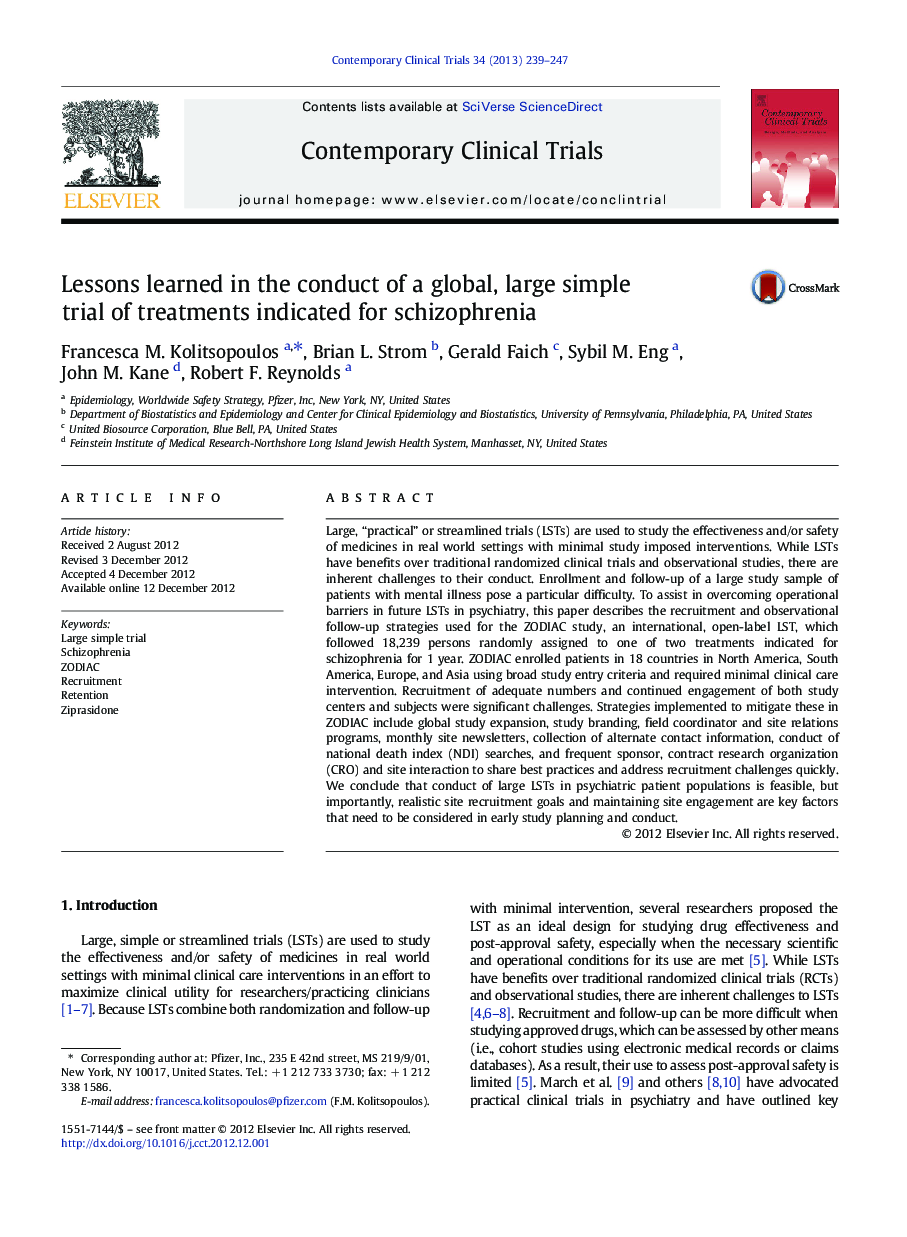| Article ID | Journal | Published Year | Pages | File Type |
|---|---|---|---|---|
| 3462680 | Contemporary Clinical Trials | 2013 | 9 Pages |
Large, “practical” or streamlined trials (LSTs) are used to study the effectiveness and/or safety of medicines in real world settings with minimal study imposed interventions. While LSTs have benefits over traditional randomized clinical trials and observational studies, there are inherent challenges to their conduct. Enrollment and follow-up of a large study sample of patients with mental illness pose a particular difficulty. To assist in overcoming operational barriers in future LSTs in psychiatry, this paper describes the recruitment and observational follow-up strategies used for the ZODIAC study, an international, open-label LST, which followed 18,239 persons randomly assigned to one of two treatments indicated for schizophrenia for 1 year. ZODIAC enrolled patients in 18 countries in North America, South America, Europe, and Asia using broad study entry criteria and required minimal clinical care intervention. Recruitment of adequate numbers and continued engagement of both study centers and subjects were significant challenges. Strategies implemented to mitigate these in ZODIAC include global study expansion, study branding, field coordinator and site relations programs, monthly site newsletters, collection of alternate contact information, conduct of national death index (NDI) searches, and frequent sponsor, contract research organization (CRO) and site interaction to share best practices and address recruitment challenges quickly. We conclude that conduct of large LSTs in psychiatric patient populations is feasible, but importantly, realistic site recruitment goals and maintaining site engagement are key factors that need to be considered in early study planning and conduct.
